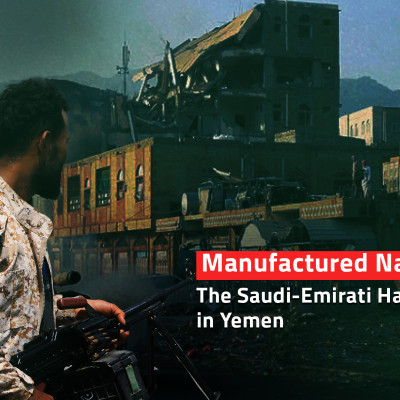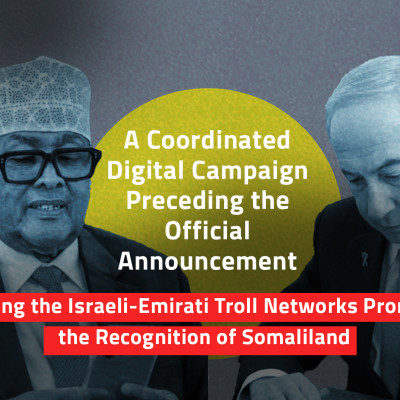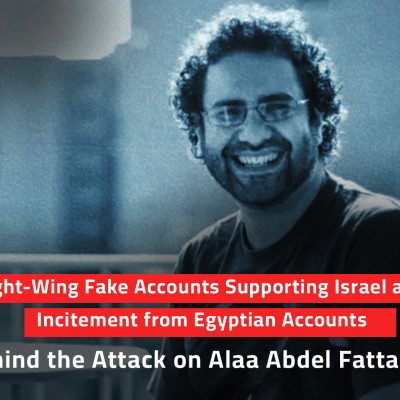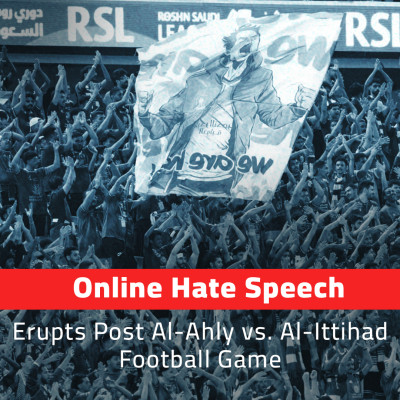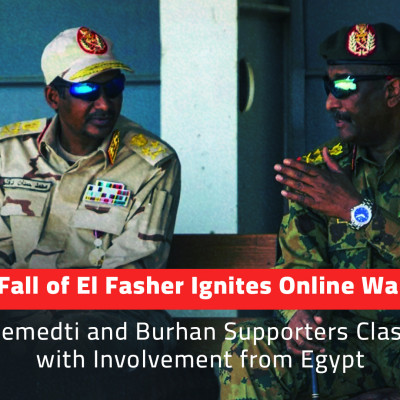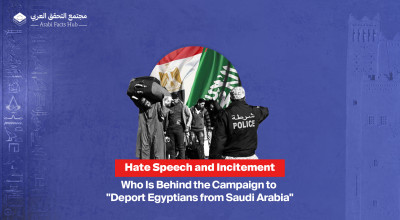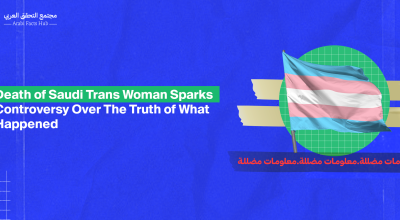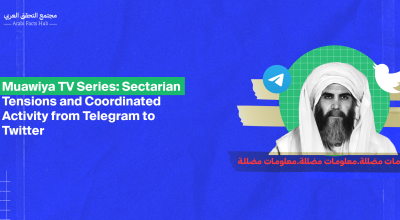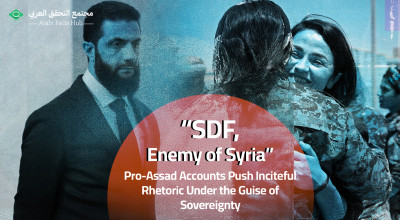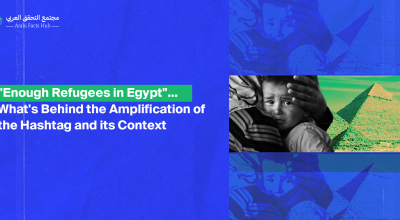Online Clashes in Sudan: Military Committees Downplay Violations and Push Their Narrative
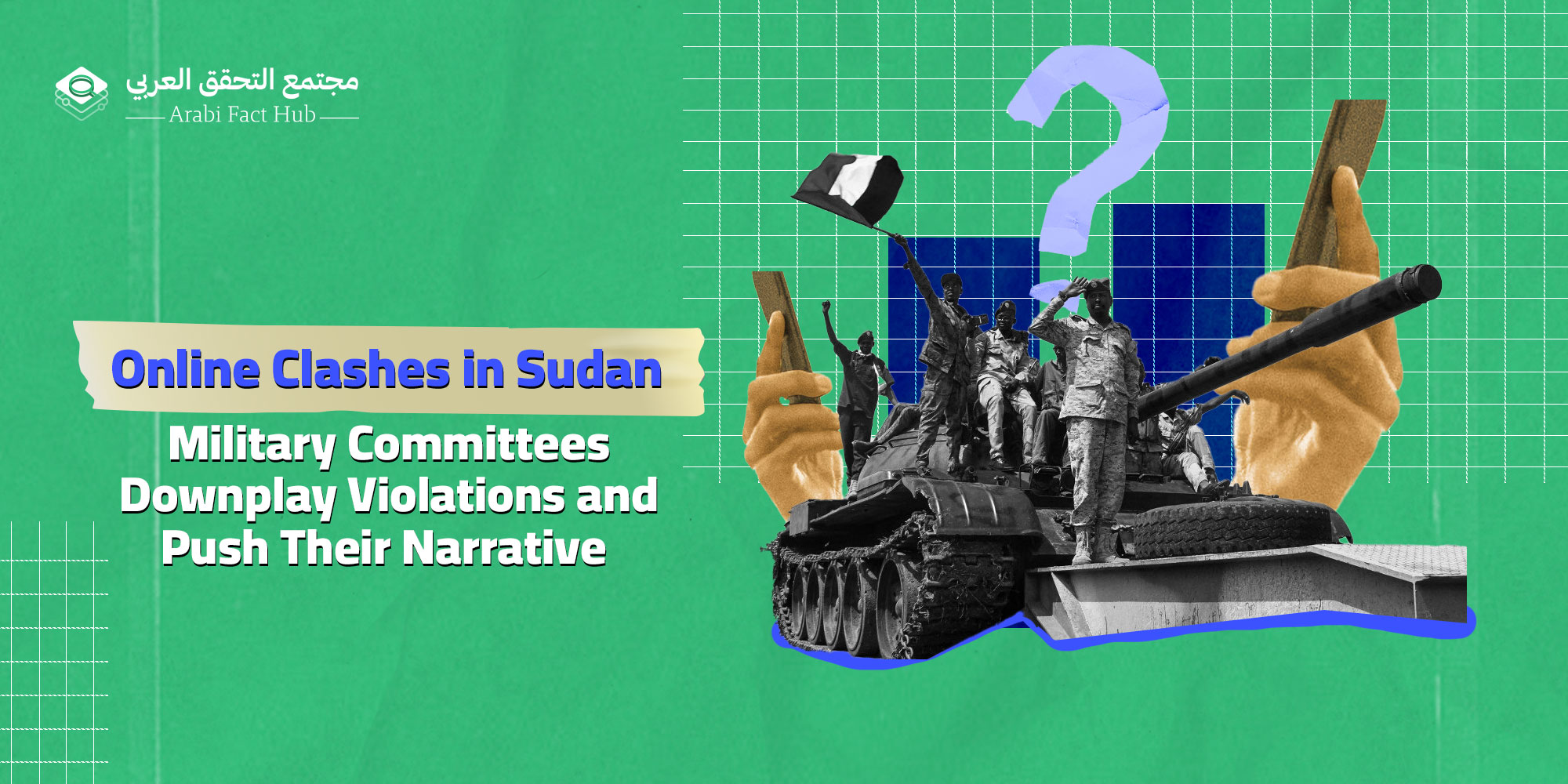
While we were working on the first part [of this report], and amid the verbal exchange between the representatives of the UAE and Sudan at the United Nations Security Council in June 2021, online activities emerged in support of the Sudanese army. Online posts accused the UAE of being involved in the killing of Sudanese citizens by allegedly providing financial and military support to the "Rapid Support Forces" to ensure the conflict continues —an accusation that UAE officials have denied.
This two-part report tracks the inauthentic online activities of the warring factions involved in the Sudanese conflict and their supporters. The first part explored the propaganda campaign surrounding former Prime Minister Abdalla Hamdok and the head of the "Coordination of Democratic Civil Forces - Taqaddum," along with the associated efforts to promote and endorse the UAE's role in Sudan. The second part dissects a network of accounts supporting the Sudanese army, which have consistently launched counter-campaigns against its critics.
While we were working on the first part, and amid the verbal clashes between the representatives of the UAE and Sudan at the UN Security Council in June 2021, online activities emerged in support of the Sudanese army. These activities accused the UAE of involvement in the killing of Sudanese citizens by allegedly supplying the "Rapid Support Forces" with money and weapons to continue the war—an accusation denied by UAE officials.
It was also observed that activity increased around several hashtags, which spread in a coordinated manner across social media platforms "X" and "Facebook." Some posts included accusations against the UAE and the "Rapid Support Forces - RSF," which appear to be part of a broader conflict aimed at imposing a narrative of the war that condemns one side over the other. Meanwhile, reports from the United Nations and independent human rights organizations hold both the Sudanese army and the RSF responsible for committing violations during the ongoing conflict since April 2023.
Context
Tensions between Sudan and the UAE escalated after Khartoum accused Abu Dhabi of supporting the "Rapid Support Forces" (RSF), a group formed in the early 2000s from Arab militias in Darfur to assist the Sudanese army in quelling the rebellion against Omar Al Bashir's regime. For months after the war erupted, these accusations remained indirect. However, the accusations became public for the first time in late November when Lieutenant General Yasser Al Atta, Deputy Commander of the Sudanese Army under Abdel Fattah Al Burhan, accused the UAE of sending planes carrying military supplies to the RSF through African countries such as Chad, Uganda, and the Central African Republic.
Verbal clashes between officials from both countries resurfaced at the UN Security Council on June 18, 2024, when Sudan's representative urged the Council to condemn the UAE, claiming that the country provides support for the RSF. Al Harith Idris asserted that "the UAE is guilty, and therefore cannot be a partner in peace."
In response, UAE representative Mohamed Abushahab dismissed the Sudanese envoy's remarks as "ridiculous and baseless accusations," calling them a "shameful violation by one of the warring parties in Sudan" and an exploitation of the Council to "spread false allegations against the United Arab Emirates to distract from the serious violations occurring on the ground."
The verbal exchanges occurred shortly after the announcement of the Nairobi Agreement, signed by Hamdok and the leaders of the "Sudan People’s Liberation Movement-North," Abdelaziz Al Hilu, and the "Sudan Liberation Movement" leader Abdul Wahid Al Nur. This agreement was accompanied by a propaganda campaign supporting Hamdok, which also saw a concurrent pro-UAE campaign and anti-Sudanese army sentiment. In contrast, anti-UAE hashtags, which first appeared when the war broke out, resurfaced. Hashtags like #UAE_Kills_the_Sudanese, #UAE_Sponsors_Terrorism, and #UAE_Arms_RSF gained traction. In June 2024, these hashtags saw a sudden surge in activity. Over 100,000 posts used these hashtags, garnering 16 million views and around 318,000 interactions, according to data from Meltwater, a leading social media analytics tool.
Periods of Activity for the Three Hashtags During June 2023 – Meltwater
Most influential and engaging
A total of 36,753 accounts participated in promoting the three hashtags, but what stands out is that specific accounts, particularly those supporting the Sudanese army and boasting large followings, played a key role in amplifying the reach of these hashtags. Some of these accounts have been actively engaged in online campaigns since the beginning of the war, rallying support for the Sudanese army's narrative and sharing pro-army content. Notable accounts include: @Bit_Khalifa1417, @YASIR_MOS91, @yasin123ah, and @AbbasMo77873890. Among these, the account @Bit_Khalifa1417 was the most active, generating 10,471 posts in the form of replies and comments, and engaging 4,651 other accounts.
Before the war, Dr. Jamila Qasim, the owner of the account, was active in the field of education. Her account handle was previously @Bit_Batoul1417, named after her mother "Batoul," before she changed it to the current handle, according to our research. Although the account was created in 2015, it contains only recent posts, which may suggest that older posts were deleted.
Typically, this account is active on hashtags supporting the Sudanese army, sharing footage of ongoing events on the ground, and hosting audio spaces to discuss developments in Sudan.
In addition to appearing in Sudanese audio spaces, Yemeni accounts were also active on anti-UAE hashtags. Notably, Yemeni activist Anes Mansour (@anesmansory), a prominent figure in launching anti-UAE online campaigns in Yemen, was among those leading the charge.
Other accounts were also active on these hashtags, such as "Emirates Leaks," which presents itself as a "media platform dedicated to exposing UAE scandals and crimes." This account consistently used anti-UAE hashtags in its posts to promote articles published on its website, which contributed to increased engagement with the hashtags.
This
account was created on X in July 2021, while the 'Emirates Leaks' website launched on February 1, 2018; a few months after the outbreak of the Gulf crisis with Qatar. On September 21, 2018, a page for the site appeared on Facebook.
While it isn’t possible to determine who launched the 'Emirates Leaks' site, the site's content has consistently criticized the UAE and shown clear support for Qatar and its political positions.
What is in the hashtag?
Research centers and global media outlets have analyzed the UAE's role in the Sudanese conflict by using verification techniques and open sources. Media platforms tracked the movement of large UAE cargo planes heading to neighboring countries like Chad and Uganda, suspected of delivering weapons to the RSF. The presence of UAE weapons in the hands of the RSF has also been documented.
That being said, some hashtag posts have promoted unverified claims made by Sudanese officials about the discovery of UAE weapons, passports, and communication devices in the possession of the RSF.
In addition to attacking the UAE and its President, Mohamed bin Zayed, the posts also criticized former Sudanese Prime Minister Abdullah Hamdok and the Coordination of Civil Democratic Forces, calling them 'political arms of the Rapid Support Forces.'
Although many Sudanese are accustomed to sharing original online content criticizing the UAE’s role in the conflict and attacking the RSF, the campaign accounts display a recurring pattern of promoting the Sudanese army and attempting to spread its narrative about the war.
Facebook groups
The hashtags’ reach extended beyond X to Facebook where Sudanese groups played a role in promoting their content. These groups are influential since some of them boast hundreds of thousands of followers. They are run by Sudanese supporters of the army.
Since last November, the hashtag #UAE_Kills_the_Sudanese has seen 2,593 posts from public, open groups, garnering over 18,000 interactions, including likes, comments, and shares, according to statistics from the content analysis tool Crowd Tangle on Facebook.
The most prominent of these groups have names that indicate support for the Sudanese army or opposition to the RSF, such as: Sudanese Army (Unofficial Group), Armed Forces (Unofficial), Special Operations Forces and Operations Authority (Unofficial), Sudanese Armed Forces are the Legal Forces of the Country by Law and Constitution (Unofficial), Support the Sudanese Army, Al Inserafi, Sudan, Graveyard of the Janjaweed, This is Security O Jinn, Dissolution of Political Parties in Sudan, and Assistant Mohammed Ali Abdul Majid. These groups included posts similar to those on X, some of which repeated unverified claims about the death of an Emirati officer during the war in Sudan, as well as exaggerating official statements regarding 'evidence' presented by Sudan to the Security Council 'condemning the UAE's involvement in the conflict.

























